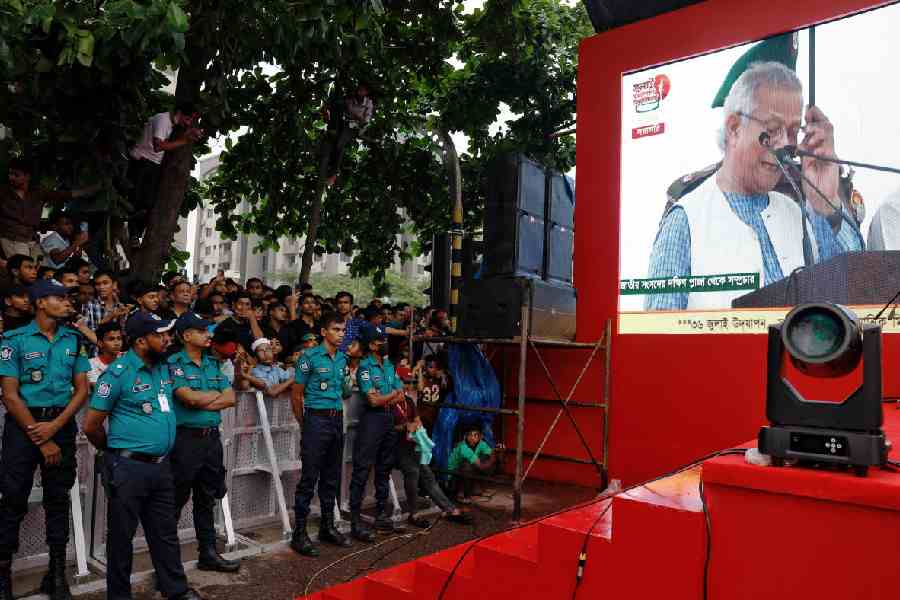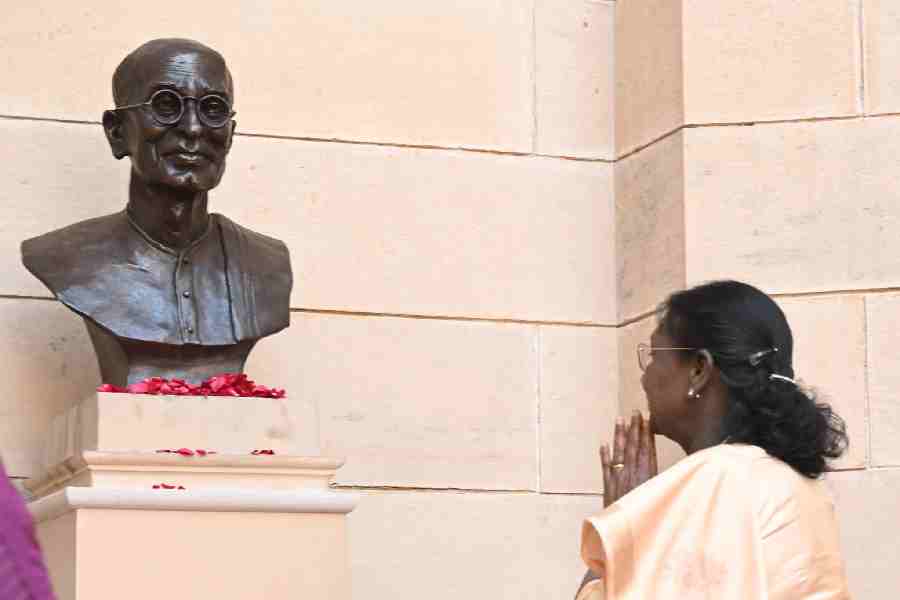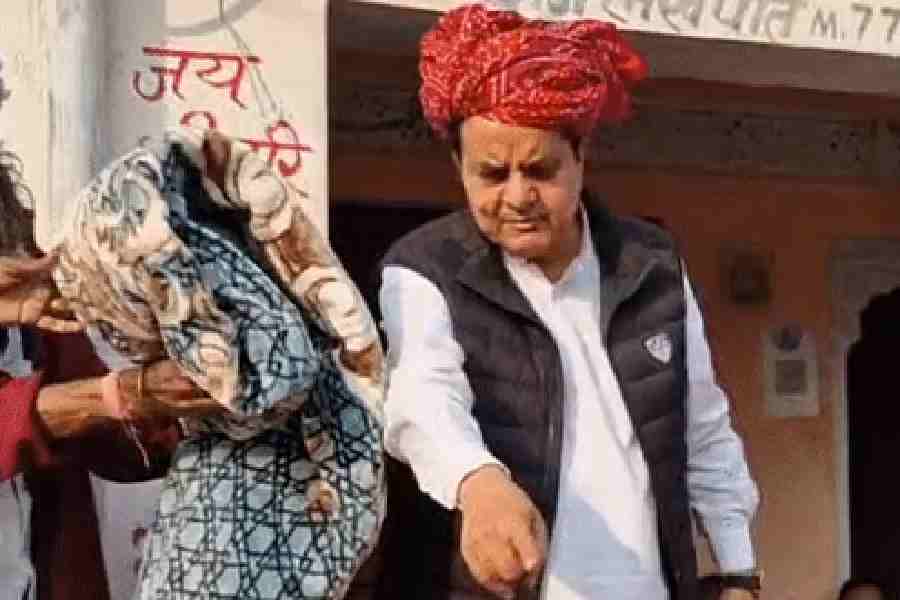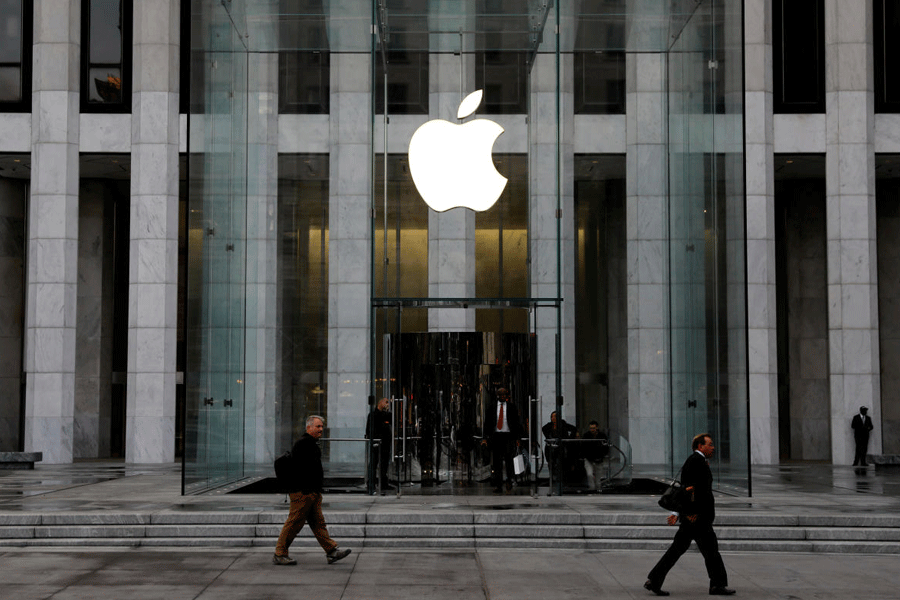There appears to be an inverse correlation between the political stability of a country and the force of its rumour mills. The week that witnessed the commemoration of the first anniversary of Bangladesh’s latest regime change also experienced its bush telegraph go into overdrive.
There was, first, feverish speculation over the non-disclosure agreement that accompanied the country’s understanding on tariffs with the United States of America. Since Bangladesh was seen by its Establishment to have emerged from Donald Trump’s mercantilist rampage with only a few bruises, there was understandable concern over what the caretaker regime of Muhammad Yunus had sneakily conceded to the US to escape punitive levies. The bizarre NDA merely fuelled the belief that what was conceded would have been completely unpalatable to the people of Bangladesh and was hence kept secret. The speculation ranged from the needless purchase of Boeing aircraft for the ailing State-run national airline to facilitating the logistics of a bid to forge a Christian-majority Kachin state along the Bangladesh-Myanmar border.
Secondly, conspiracy theorists had a field day when, instead of celebrating their victory over ‘fascism’ on August 5, five important student leaders, now functionaries of the National Citizen Party (also referred to as the King’s Party for its special status in the Yunus dispensation), quietly took a morning flight to the seaside town of Cox’s Bazar to meet an unnamed foreigner. The speculation was that the meeting was with a former US ambassador who had played a significant role in destabilising the Sheikh Hasina government during the 2024 election season. That turned out to be a wrong number. But in view of earlier revelations that the Joe Biden administration had funnelled more than $30 million through USAID and the National Endowment for Democracy to redesign the political landscape of Bangladesh, the conviction that the sinister American Deep State was back in business has resurfaced. No one really knows why the student warriors, who have earned considerable disrepute in the past 12 months as extortionists, were summoned and came running to this seaside resort. However, there are many colourful theories floating in the air.
Finally, to complete the farce being enacted in the name of politics, the Yunus regime put out the yarn of a gathering of 400 activists of the outlawed Awami League inside a convention centre at Bashundhara in the heart of Dhaka. Here, they were apparently instructed in the art of sabotage and subversion by a serving major in the Bangladesh army who has since been arrested and is facing court martial. The suggestion is that Hasina’s party is preparing its cadre for a violent comeback. While flattering to the Awami League’s reputation as a live opposition force, this seems a fanciful possibility. The party, with some 110 of its former MPs in prison and a big section of its leadership in exile, has not yet got over the shock of its dispossession. The Awami League no doubt still retains a great deal of passive support, but the willingness of its erstwhile activists to risk harsh punishment from the Yunus regime by taking to the streets at this moment is in doubt.
It is nevertheless intriguing that the high level of comfort that should have otherwise accompanied grandiose claims by the July revolutionaries of establishing a Second Republic was not apparent. The popular response to the State-sponsored commemoration in Dhaka on August 5, with Yunus reading out an essay charting out a revisionist national history, was emphatically underwhelming. Equally, the announcement of parliamentary elections by mid-February 2026 was greeted with scepticism. While some felt that Yunus — backed by his student storm troopers and the Islamists — would manoeuvre a postponement, others believed that the stalwarts of the caretaker regime were plotting a ‘safe exit’, leaving Bangladesh to the mercy of the armed forces.
Neither of these possibilities may translate into reality and Bangladesh’s future could well be less bumpy. Indeed, over the past week, an impression has also gained ground that the US has given a green signal to the Bangladesh Nationalist Party led by the exiled Tarique Rahman (the son of Khaleda Zia) to take over the mantle from Yunus in February. While such a development may indeed satisfy those in quest of stability in Bangladesh, the indications are, however, not uniformly encouraging.
To begin with, the country is faced with a problem of lawlessness that invariably follows the abrupt collapse of a strong leader. Much of the responsibility for the widespread extortion of businesses and the blackmail of those associated with the previous regime has been largely pinned on the so-called student activists who were at the forefront of the July uprising. Their transition from idealism to criminality has been seamless and backed by State indulgence. Since their political start-up hasn’t quite met with public adulation, the student leaders now have a vested interest in the perpetuation of the Yunus dispensation. Their desperation to take maximum advantage of the prevailing uncertainties is also due to a great fear of recriminations that invariably follow the change of political seasons in Dhaka.
Then there is the Jamaat-e-Islami that has not merely spread its tentacles inside the administration and the army but possesses an army of foot soldiers drawn from its network of mosques and madrasas. Its considerable street power — in evidence at the July 19 rally in Dhaka — may not translate into a winning vote bank, a reason why it has kept up a demand that the forthcoming parliamentary election should be contested on the basis of proportional representation, but it has the clout to exercise a veto on the caretaker government. Whether it will do so to stymie the BNP’s expectation of a resounding election victory next February isn’t certain. The Jamaat has a reputation for playing for the long haul. It will, however, quite definitely expect to put its distinctive religious stamp on the national personality of Bangladesh. For the moment, there is considerable trepidation over the implications of the Jamaat forging a united front of all Islamic parties to contest the scheduled February elections.
For the Jamaat, the history of Bangladesh doesn’t begin on March 7, 1971, the day Sheikh Mujibur Rahman announced that swadhinata was his goal, but on August 14, 1947, the day Pakistan was proclaimed. That Islamic inheritance was conferred a large measure of legitimacy in the July uprising. Reviled for five decades as Razakars and collaborators, the Jamaat will do its utmost to prevent any return to the ‘secular’ Bangladesh that existed prior to Hasina’s ouster. This doesn’t imply that its only priority is securing a parliamentary majority — though that will help. Its principal focus is ensuring the permanence of an unwavering Islamic Bangladesh run on lines totally different from the liberal Constitution of 1972. A new bout of uncertainty will engulf the country in case the BNP doesn’t play ball.










